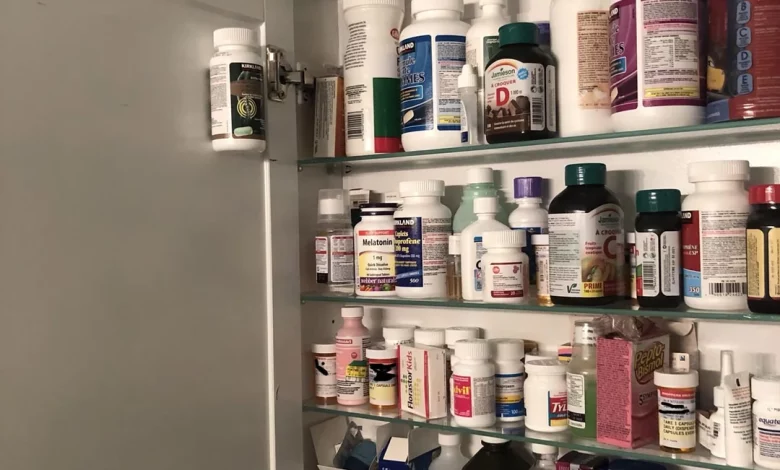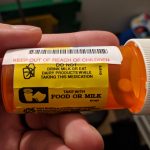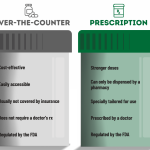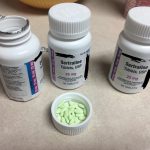The Dangers of Mixing Prescription Medications: Tips for Safe Medication Use

Prescription medications can be a lifesaver for many individuals who require them to manage their health conditions. However, the dangers of mixing prescription medications should not be underestimated. Taking more than one medication at the same time can lead to serious health risks, including overdose and death.
A 2017 study published in the Journal of the American Medical Association found that over 50% of adults in the United States take at least one prescription medication, and nearly a quarter of adults take three or more prescription medications. This is not surprising, given that many health conditions require ongoing management, and multiple medications may be necessary to effectively treat these conditions.
However, the more medications a person takes, the higher the risk of medication interactions and adverse reactions. For example, the same study found that nearly 40% of adults taking five or more medications experienced a medication interaction, compared to only 6% of adults taking one medication. This highlights the importance of being aware of potential medication interactions and taking steps to reduce the risk of adverse reactions.
It is also important to note that the risk of adverse reactions increases with age. As people age, they are more likely to develop multiple health conditions that require medication, and their bodies may be less able to process medications efficiently. Additionally, older adults may be more susceptible to medication interactions and adverse reactions due to changes in metabolism and organ function.
It is important to understand the risks of mixing prescription medications and take steps to ensure your safety.
Understanding the Risks
The human body processes medications in different ways, and taking more than one medication at a time can lead to unpredictable interactions. Some medications may interact with each other, leading to increased or decreased effectiveness of one or both drugs. Other medications may interact with foods or supplements, leading to adverse reactions.
The risks of mixing prescription medications can be especially high when combining medications from different classes. For example, combining sedatives and opioids can lead to respiratory depression, a potentially life-threatening condition in which breathing slows down or stops. Mixing medications that affect the central nervous system, such as benzodiazepines and muscle relaxants, can also be dangerous and increase the risk of sedation and impaired coordination.
Even taking two medications from the same class can be risky. For example, taking two different NSAIDs (nonsteroidal anti-inflammatory drugs) at the same time can increase the risk of gastrointestinal bleeding and other complications.
Steps to Ensure Your Safety
To reduce the risk of mixing prescription medications, there are several steps you can take:
1. Keep a list of all your medications: Make a list of all the prescription medications, over-the-counter medications, and supplements you take. This list should include the name of the medication, the dosage, and the frequency of use. Share this list with your healthcare provider at every appointment.
2. Follow instructions: Always follow the instructions on the label and take medications exactly as prescribed. If you have any questions about how to take a medication, ask your healthcare provider or pharmacist.
3. Don’t share medications: Never share your prescription medications with others, and don’t take medications that were prescribed for someone else.
4. Be aware of potential interactions: Before taking a new medication, be sure to talk to your healthcare provider about any potential interactions with your other medications. You can also use online tools to check for potential interactions.
5. Use one pharmacy: Use the same pharmacy for all your medications. This will help ensure that your pharmacist has a complete list of all your medications and can check for potential interactions.
6. Avoid alcohol: Avoid drinking alcohol while taking prescription medications. Alcohol can interact with many medications and increase the risk of adverse reactions.
7. Dispose of unused medications: Dispose of any unused medications properly. Don’t keep them in your home, as they can be dangerous if taken by accident or misused.
In addition to the steps mentioned above, there are some specific situations where mixing prescription medications can be particularly risky. For example, older adults are at higher risk for adverse drug reactions and may be taking multiple medications for different health conditions. They should be particularly cautious when taking medications and should talk to their healthcare provider about any concerns.
People with mental health conditions may also be at increased risk for medication interactions, particularly if they are taking medications for both their mental health conditions and other health issues. It is important to work closely with your mental health provider and other healthcare providers to ensure that all medications are safe to take together.
If you suspect that you are experiencing a medication interaction, it is important to seek medical attention right away. Symptoms of a medication interaction can include dizziness, confusion, nausea, vomiting, difficulty breathing, or changes in heart rate. In severe cases, medication interactions can lead to coma or death.
In conclusion, while prescription medications can be an effective way to manage health conditions, it is important to be aware of the risks of mixing medications. Taking multiple medications at the same time can lead to unpredictable interactions and increase the risk of adverse reactions. To ensure your safety, be sure to keep a list of all your medications, follow instructions, avoid sharing medications, be aware of potential interactions, use one pharmacy, avoid alcohol, and dispose of unused medications properly. If you have any concerns about mixing medications, talk to your healthcare provider or pharmacist.





